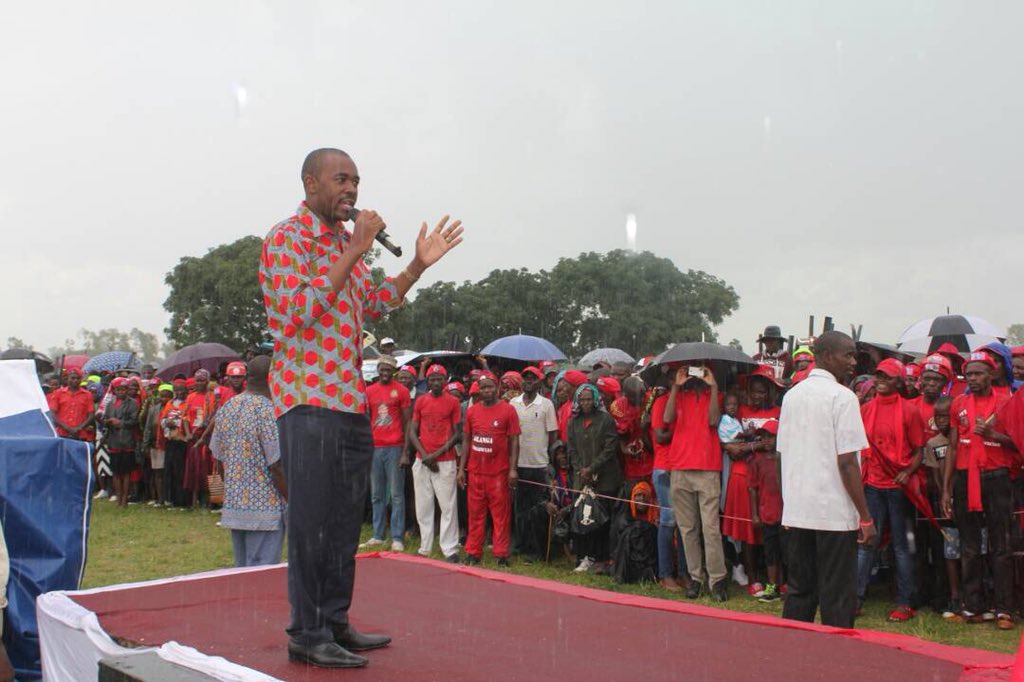Imagine President Emmerson Mnangagwa squaring off with other presidential candidates such as MDC Alliance hopeful Advocate Nelson Chamisa, National People’s Party (NPP) Dr Joice Mujuru and Alliance for People’s Agenda (APA) candidate Dr Nkosana Moyo.
Zimbabwe has never had a live presidential debate but that may change ahead of the ensuing harmonised elections in July/August. Is there an organisation out there in the process of organising such an event? If so, l hope the programme is now at an advanced stage. Once the president proclaims the election date, naturally follows and we can expect to have these debates after the Nomination Court seating.
Presidential debates are not a new phenomenon around the world. In countries such as United States, presidential debates are an anticipated event on the election calendar and they can be traced back to 1858 senatorial debate between Stephen Douglas and Abraham Lincoln who went on to lose the seat. However, they were not to be prominent until 1948 when a presidential debate radio broadcast between Republican primary contenders Thomas Dewey and Harold Stassen drew 40- 80 million listeners.
In Africa Liberia, Kenya and the unrecognised Somaliland held successful presidential debates last year. The purpose of debates is to provide the candidates with an uncensored showcase of what they can offer the electorate if elected into office. In other words candidates are afforded the opportunity to provide informative, concise summaries of their major policy positions and viewpoints in regards to nation building and development. Debates undoubtedly assist in the strengthening and growth of democratic process by encouraging and supporting the dissemination and discussion of political views in open and unbiased manner.
Research in the United States has shown that presidential debates provide voters who would not normally attend rallies the opportunity to scrutinise candidates as debates prompt viewers to seek more information about a candidate. Above all, provide candidates with ways to improve which is only made possible through viewer’s generous feedback, suggestions and continuous dialogue.
Debates also provide indicators as to how candidates may act under pressure. The overall aim is to hear how candidates pronounce themselves on broad policy issues that resonate with the masses relating to human rights, rule of law and democracy that Zimbabwe has been subjected to international condemnation in recent years.
Bread and butter issues such as fighting unemployment, massive corruption, resuscitating the collapsed healthcare system, working towards gender equity, amending the contentious indigenisation and empowerment Act, and improving and creating new infrastructure for socioeconomic development of the country will undoubtedly take centre stage.
There is no doubt that voters will find presidential debate series both informative and useful in choosing the right candidate for office. With so much promise at rallies that has taken place across the country were MDC Alliance Nelson Chamisa is promising bullet trains, US15 billion investments from international partners to resuscitate industry and create employment, turning Victoria Falls into a Las Vegas of Africa.
Whilst incumbent President Mnangagwa continues with his rhetoric of selling brand Zimbabwe to the international community to stimulate investments and fight corruption when there is an outcry that Team Lacoste alleged corrupt bigwigs are being protected whilst Generation 40 (G40) aligned persons are being victimised through prosecutions for alleged corruption. After all when tanks rolled from Inkomo Barracks the military stated that they wanted to “remove criminals surrounding President Mugabe”. Another aspiring candidate Dr Nkosana Moyo is on record stating that “wherever he goes people are saying he is the right candidate for president”. Maybe he will be able to articulate in greater depth why people believe he is the right candidate.
The environment prevailing in the country is conducive for the first presidential debate series. It will be interesting how these and other candidates square off in these and more issues. The debates should also take place at a venue were the electorate can be accommodated and maybe be allowed to seek clarification and also pose some questions to the candidates. However, so such debates to take place candidates should be allowed to agree to the criteria, dates and the methods of engagement.
